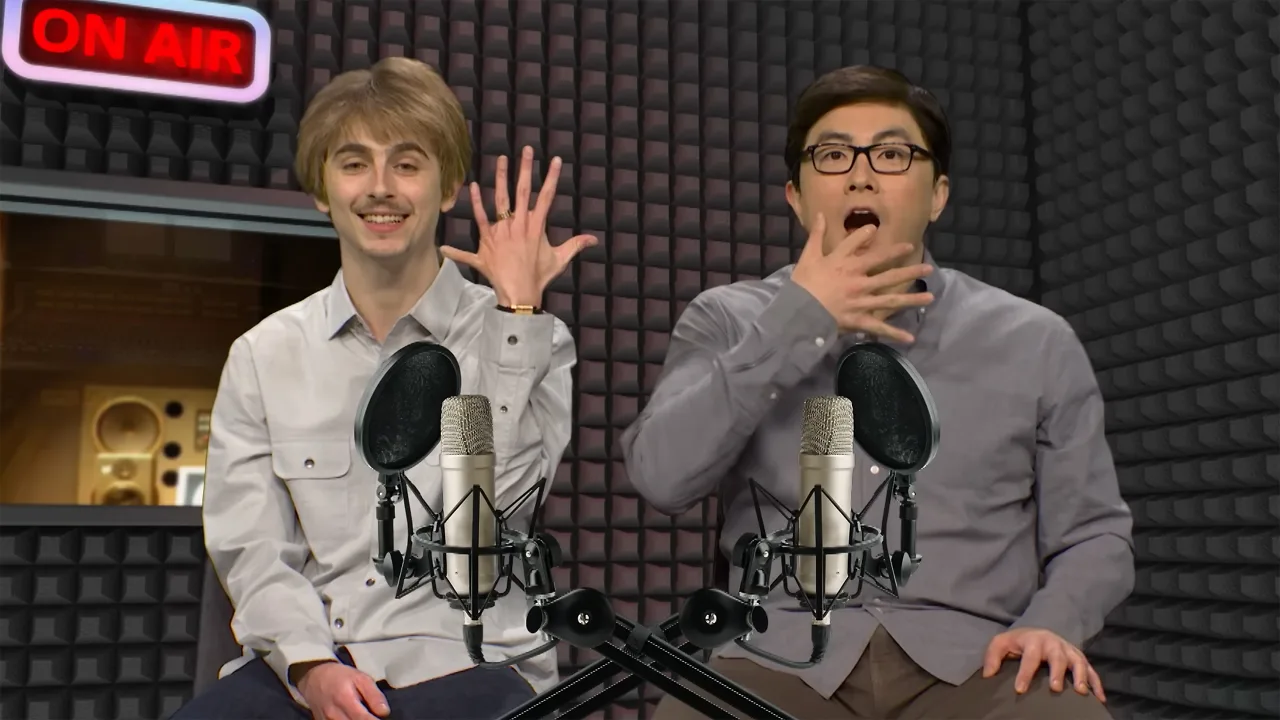WWW.FASTCOMPANY.COM
Everything wrong with the AI landscape in 2025, hilariously captured in this SNL sketch
Isnt AI supposed to make things simpler? asks a student in a new Saturday Night Live sketch.Technically, the answer is yes. Artificial intelligence is often pitched as a future-forward omni-tool for removing friction from everyday tasks. Of course, the student in this sketch (SNL cast member Sarah Sherman) only asks her question after AI has made one such task even more complicated. And thats just one of the many glaring flaws with AI, as it exists in 2025, that the shows writers illustrate to perfectionpresumably without any help from Sora.The premise of the sketch finds a high school investing in a new AI program that turns textbooks into educational podcasts. Its a barely veiled allusion to Googles NotebookLM, a program that creates breezy, conversational summaries from dense documentsand which quickly went viral after debuting last October. Unlike in real life, the SNL version of the fake podcasts has a video component. What the sketch portrays accurately, however, is the way AI products often have questionable utility, overinflate whatever utility they do have, and come brimming with glitches. The hosts of the podcast strain to sound natural, repeat key phrases again and again, and ultimately leave the skeptical students with more questions than answers.According to Gavin Purcell, a (very much human) cohost of the AI-demystifying podcast AI for Humans, the product this sketch is based on actually does offer some benefits.NotebookLM can struggle with getting all its facts right and, over time, the voices get repetitive, but its an interesting use case of how AI can break down complicated topics and make them more digestible, Purcell says. Try throwing an extensive Wikipedia page into it and see what comes out. You might be surprised.In the sketch, though, the program uses full textbooks rather than the smaller documents NotebookLM was made to condense. (The length of the average podcast the real product churns out is five to 10 minutes.) Condensing a whole textbook into a podcast would create something closer to a breezy, conversational audiobook than a short podcast snippet. And its exactly this kind of redundancy that AI tech too often offers.One need only visit the most recent CES to see this redundancy in action. That event was overflowing with AI-assisted devices like Boschs new smart crib, which lets parents know when their baby has pooped overnightas opposed to the age-old technology that has historically done so: a screaming baby . . . not to mention Samsungs new, AI-powered washing machine, which not only alerts users when their laundry is done, but also lets them take phone calls through the machine, for some reason.Beyond satirizing AI products whose usefulness is dubious, the SNL sketch also taps into AI true believers tendency to get overhyped too early. Anything that is useful at all suddenly becomes revolutionary. A student might understandably use a fake podcast to briefly learn about a specific topic, as Notebook LM demonstrated, but that doesnt mean the program is going to disrupt learning as we know it, let alone destroy the podcast industry.NotebookLM was one of these small, quirky AI products that I dont think Google even thought would blow up as big as it did, Purcell says. And, unfortunately, as often happens when something AI-based explodes into the mainstream, you get a lot of OMG, PODCASTING IS SO DEAD!! posts from hardcore AI people.In the past few years, experts have claimed that AI products like ChatGPT may fully reshape the legal and medical industries, among others. But ChatGPT has not yet demonstrated anything like the immaculate reliability it would need to truly revolutionize either field. Instead, its exhibited enough fallibility to only underscore the inherent value of human judgment. In one infamous example, a lawyer used ChatGPT to help a client sue an airline, and the program ended up hallucinating at least six precedent cases that did not actually exist. As long as such mistakes can ever happen, the hype around AIs power to remake every field in society should be taken with a grain of salt.And at this still-early stage in AIs evolution, mistakes happen all the time.The most prominent bug in the SNL sketch is an AI classic: One of the podcasters is depicted with six fingers. Generating anatomically correct extremities is something AI has long struggled with, but glitches manifest in all sorts of ways. McDonalds recently had to shut down its experiment with AI drive-thru, after a flurry of viral TikToks showed unwanted bacon on ice cream and other bugs, and Apple has reportedly paused AI news summaries on its new iPhones due to persistent glitches. Maybe one day, malfunctioning AI will become a rare exception, but for now, its much closer to the rule.The final turn in the SNL sketch reveals one problem with AI that humans, so far, have only scratched the surface ofits malevolent side.Do we eat? Do we exist? asks the AI podcaster played by Timothe Chalamet.Who are we? What made us? replies the one played by Bowen Yang.Now Im mad, he adds. Now I want revenge.Hopefully, though, weve all seen enough movies about the rise of the machines to know what to expect from AI if it ever reaches its apocalyptic era.
